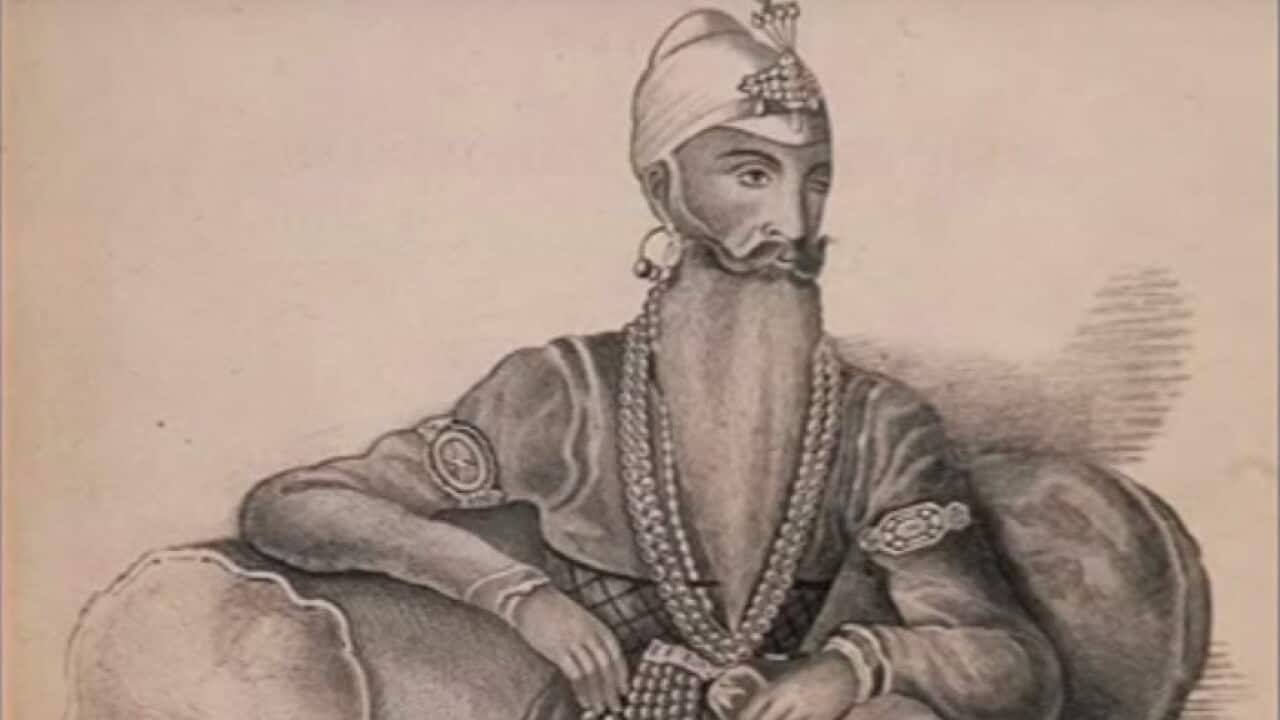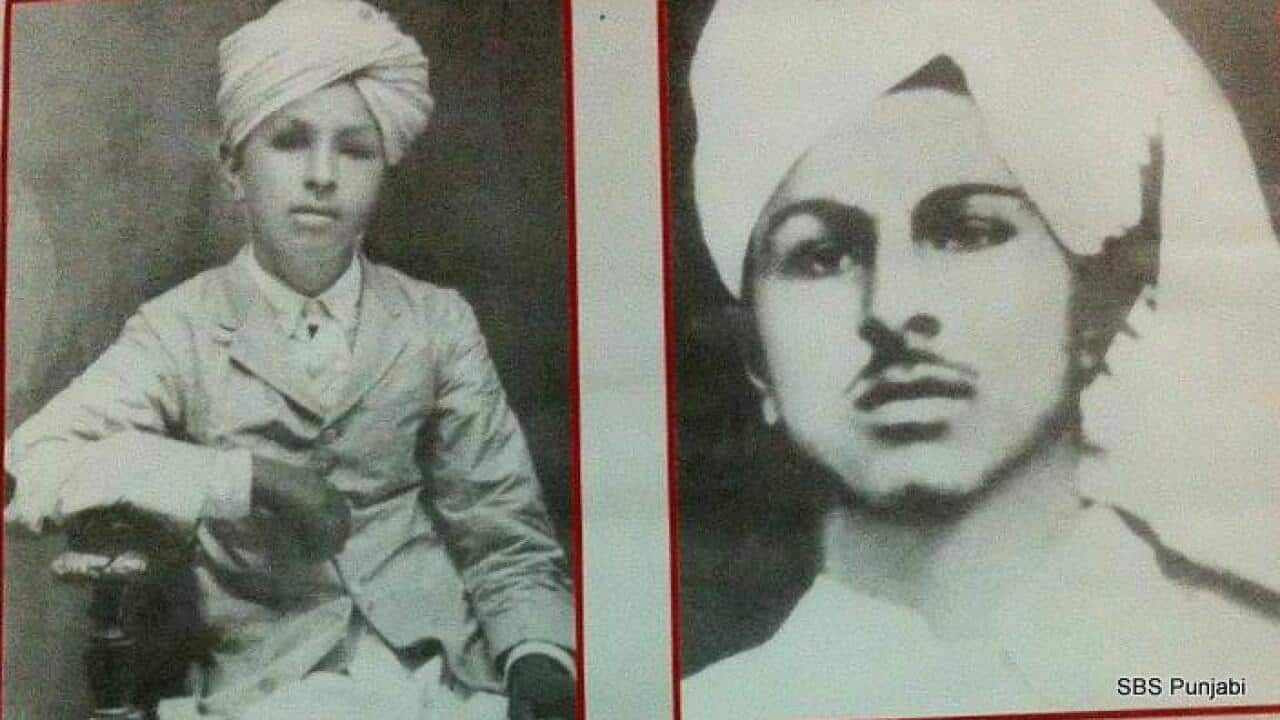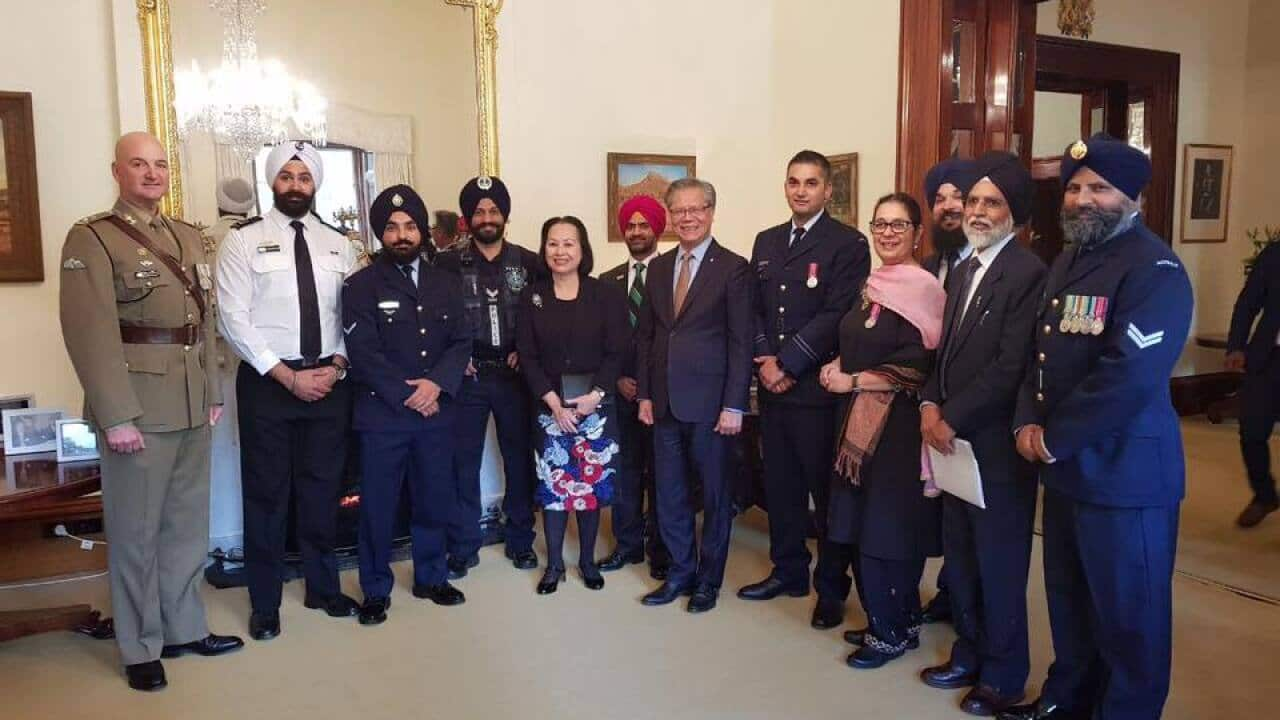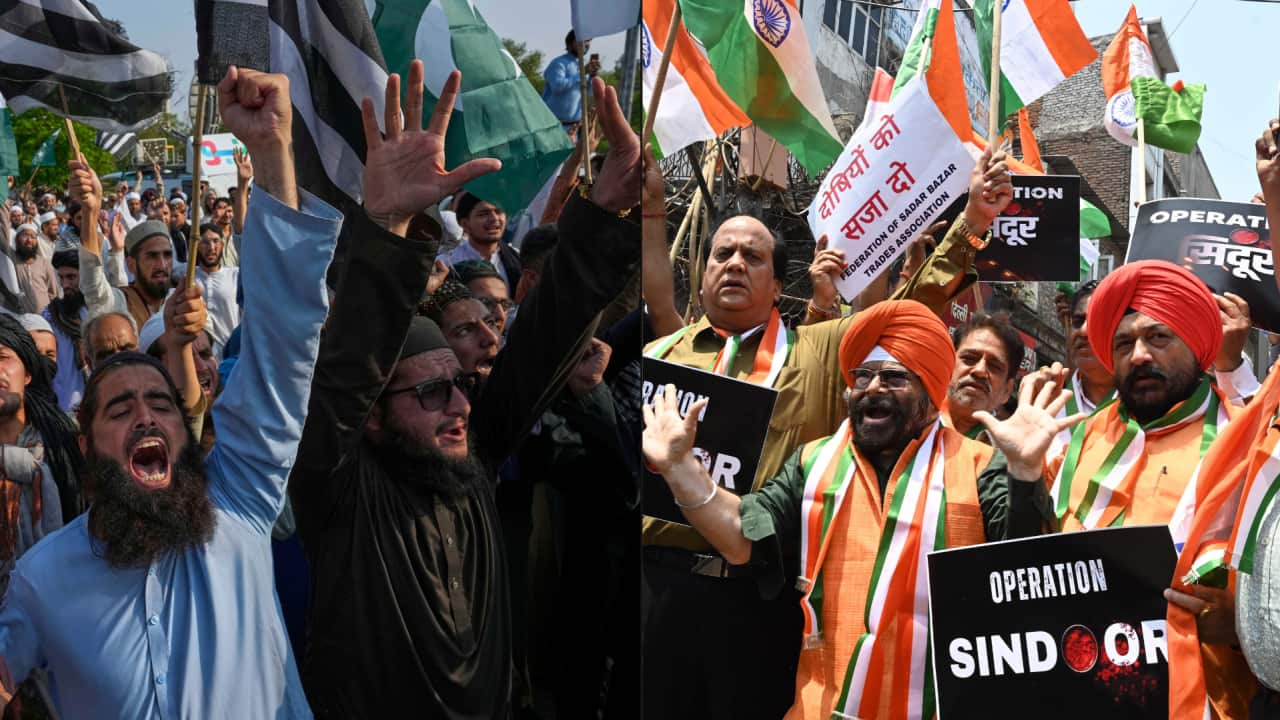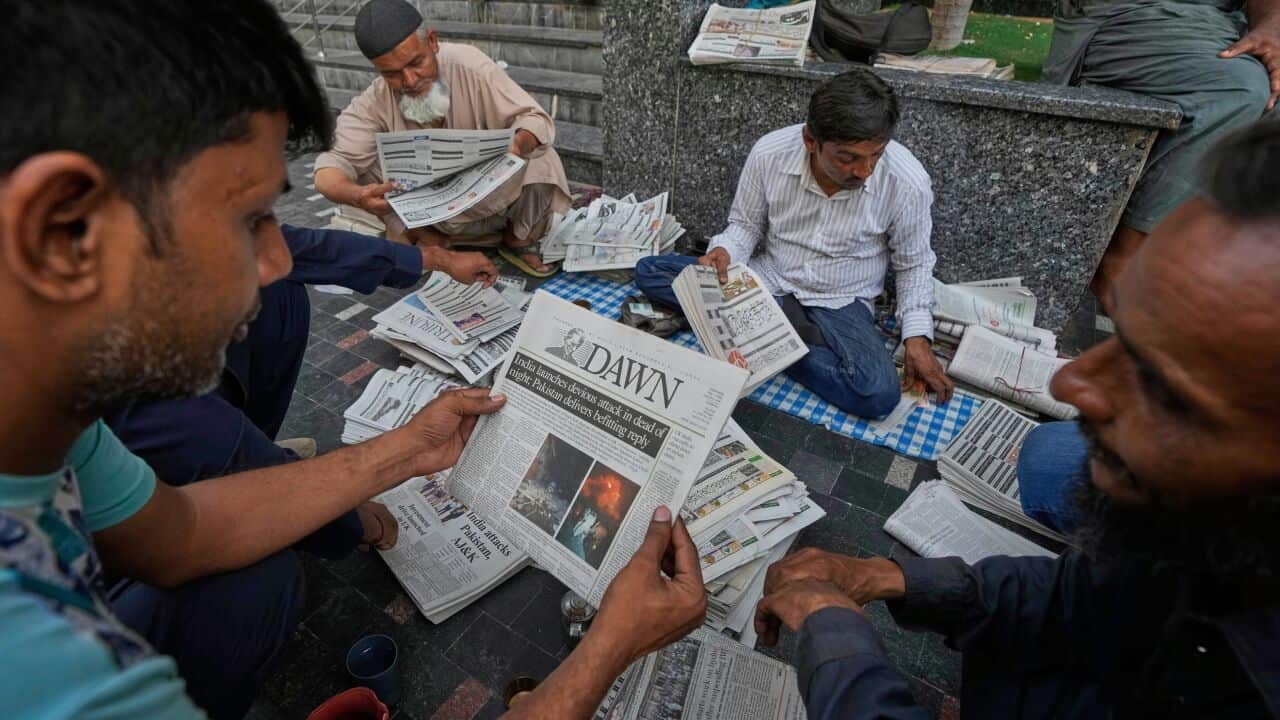Fakir Aijazuddin has passionately researched this history and written the book "The Resourceful Fakirs", highlighting the contribution of the three Fakir brothers during Maharaja Ranjit Singh's 'raj'.
In an extensive interview with SBS Punjabi, Fakir Aijazuddin tells us about the rise and the consolidation of Maharaja Ranjit Singh's empire, the principles that underpinned it, and the reasons why it is still regarded as an ideal model of governance.
"It is often said that 'he who hasn't seen Lahore, was never born'. But I have added to this. I believe, 'he who ruled Lahore, never died', and his legacy lives on, said Fakir Aijazuddin to SBS Punjabi. According to Fakir Aijazuddin, Maharaja Ranjit Singh was very young when he took over the Sukarchakiya leadership and went on to build an empire in Punjab that included Afghanistan in the west and Kashmir in the north. "His greatest quality was his egalitarianism - he was truly secular in his outlook, and appointed people into positions, based on their qualifications and loyalty. Religion was never an influencing factor in his decisions."
According to Fakir Aijazuddin, Maharaja Ranjit Singh was very young when he took over the Sukarchakiya leadership and went on to build an empire in Punjab that included Afghanistan in the west and Kashmir in the north. "His greatest quality was his egalitarianism - he was truly secular in his outlook, and appointed people into positions, based on their qualifications and loyalty. Religion was never an influencing factor in his decisions."

A painting of Maharaja Ranjit Singh's darbar in Lahore in the 19th century Source: Fakir Aijazuddin
Not only the Dogra brothers and Fakir brothers, but French generals and people of various faiths and backgrounds were entrusted in positions of power.
"The other quality of Maharaja Ranjit Singh was his unique ability to endear himself to others - he commanded love and respect of his peers, his courtiers and of the citizens. I'm not suggesting that he "bought" this love and respect - he simply commanded it", says Fakir Aijazuddin.
"Maharaja Ranjit Singh was an uneducated man, but he had learnt from the university of life, and that really held him in good stead."
"My ancestor Fakir Azizuddin was very similar to him in age. The Fakirs were mendicants, and Fakir Aijazuddin first met Maharaja Ranjit Singh, when he was summoned to the court to tend to his only functional eye. As his eye improved, the Maharaja's trust in Fakir Azizuddin grew and soon, he became an indispensable part of the court." "The reason partly for this was that whilst the Maharaja and many of his Sikh courtiers spoke in Punjabi, the official language of the time was Persian - and the Fakir brothers were very well versed in the language. It soon came to pass that Fakir Azizuddin became the Foreign Minister in the court, who wrote all the official communications and treaties for the Maharaja."
"The reason partly for this was that whilst the Maharaja and many of his Sikh courtiers spoke in Punjabi, the official language of the time was Persian - and the Fakir brothers were very well versed in the language. It soon came to pass that Fakir Azizuddin became the Foreign Minister in the court, who wrote all the official communications and treaties for the Maharaja."

The Fakir brothers (from L-R) Fakir Aijazuddin, Fakir Imamuddin and Fakir Nooruddin Source: Fakir Aijazuddin
Please note: The audio published above is the first part of an extensive interview with Fakir Aijazuddin. The second and third parts of the interview can heard by clicking the links below

Fakir Aijazuddin, who is a well known writer, commentator and historian based in Lahore, Pakistan Source: Supplied
More interviews, articles and videos from SBS Punjabi

Shaheed e Azam Bhagat Singh was a true patron of the arts!
